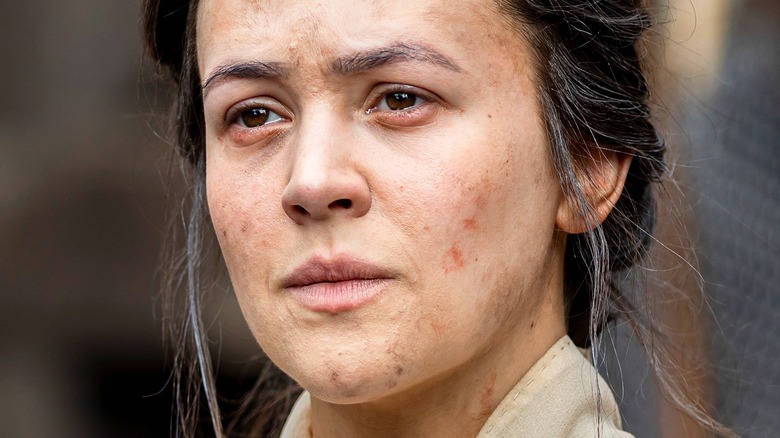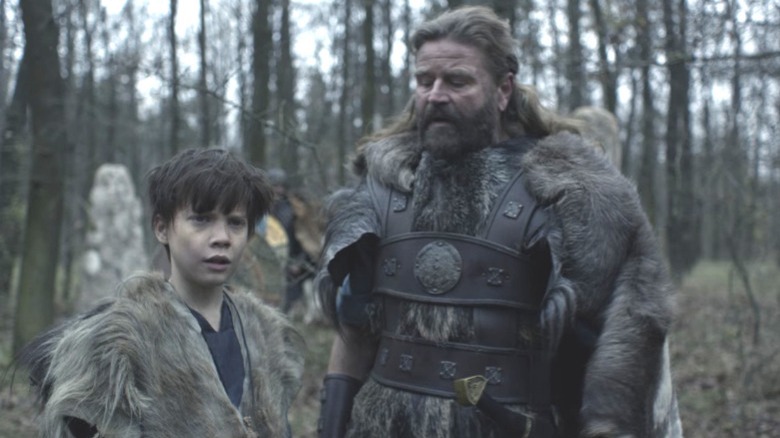How Historically Accurate Is Netflix's The Last Kingdom?
Netflix's "The Last Kingdom" is a historical drama series that chronicles the story of how the conflict between the Saxons and Vikings eventually led to the creation of England. The show is based on a series of historical novels known as "The Saxon Stories" written by historian Bernard Cornwell and primarily follows the life of Uhtred of Bebbanburg (Alexander Dreymon) — a member of a noble family from the ancient Saxon kingdom of Northumbria, who is abducted as a child and raised by the Danish Earl Ragnar (Peter Gantzier).
The story truly starts to heat up when Ragnar (whom Uhtred had come to view as a father) is murdered by Danish warriors, and Uhtred swears his allegiance to the legendary Saxon King Alfred the Great (David Dawson) as a way to get his revenge. From there, we watch as Uhtred and Alfred work together to conquer much of the land that would eventually become England, while Uhtred's loyalties are constantly torn between his true home and the people who raised him.
Considering that "The Last Kingdom" is first and foremost a drama series, it stands to reason that some of the true history of England's creation will be lost with the telling of this story — or altered for the sake of entertainment. No doubt, there are many fans out there who have wondered whether or not the series is historically accurate at all or just a reimagining of an otherwise bland or uninteresting historical tale.
The Last Kingdom is a mix of both fact and fiction
Unfortunately, it appears that "The Last Kingdom" is much more of a historical fiction series than an authentic retelling of England's history. During an interview with Den of Geek, the historical advisor on "The Last Kingdom" (Professor Ryan Lavelle) compared the show's portrayal of history to a compromise between fact and fiction. "The evidence for our period is limited, so we always have to play with history to an extent," Lavelle explained.
According to Lavelle, a few of the more glaring historical inaccuracies within the series include the show's extremely condensed timeline of historical events (which makes some characters far younger or older than they would have been in real life) and the invention of a plague during Season 4 — which has a very weak historical source, and which absolutely did not happen at the time which it was depicted. Furthermore, many of the character personalities within the series are an invention of the writers: such as the bloodthirsty Aethelred of Mercia (Toby Regbo), who is an utterly despicable villain in the series, but who was likely an ally to King Alfred according to real history (via Den of Geek).
Perhaps the most egregious historical inaccuracy in the series is the character of Uhtred himself, who is a fictional character created for Bernard Cornwell's "The Saxon Stories" and who is loosely based on the historical figure Uhtred the Bold; who lived during an entirely different century than Uhtred from the show. Ultimately, it's clear that "The Last Kingdom" is a blend of both fact and fiction — which is perhaps a good thing in the end, as this added drama helps the show to remain captivating and exciting.

